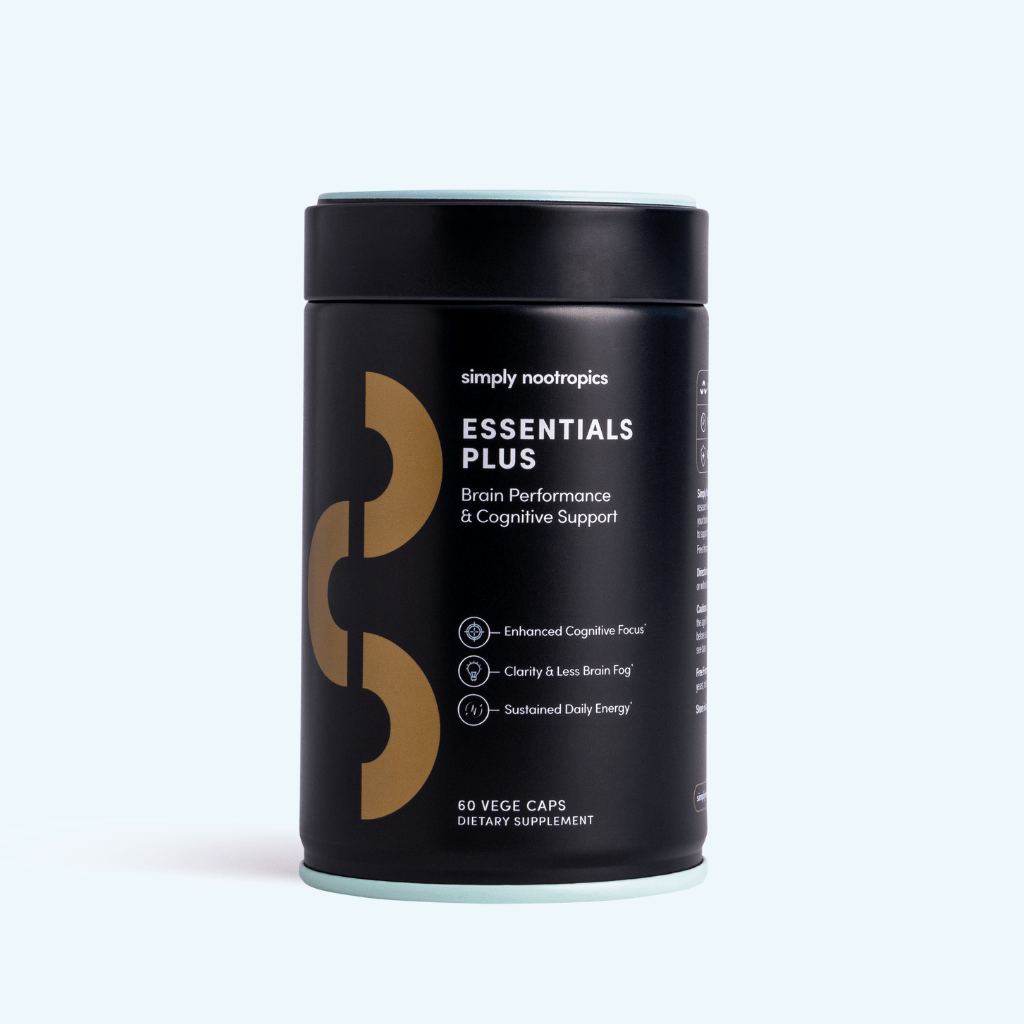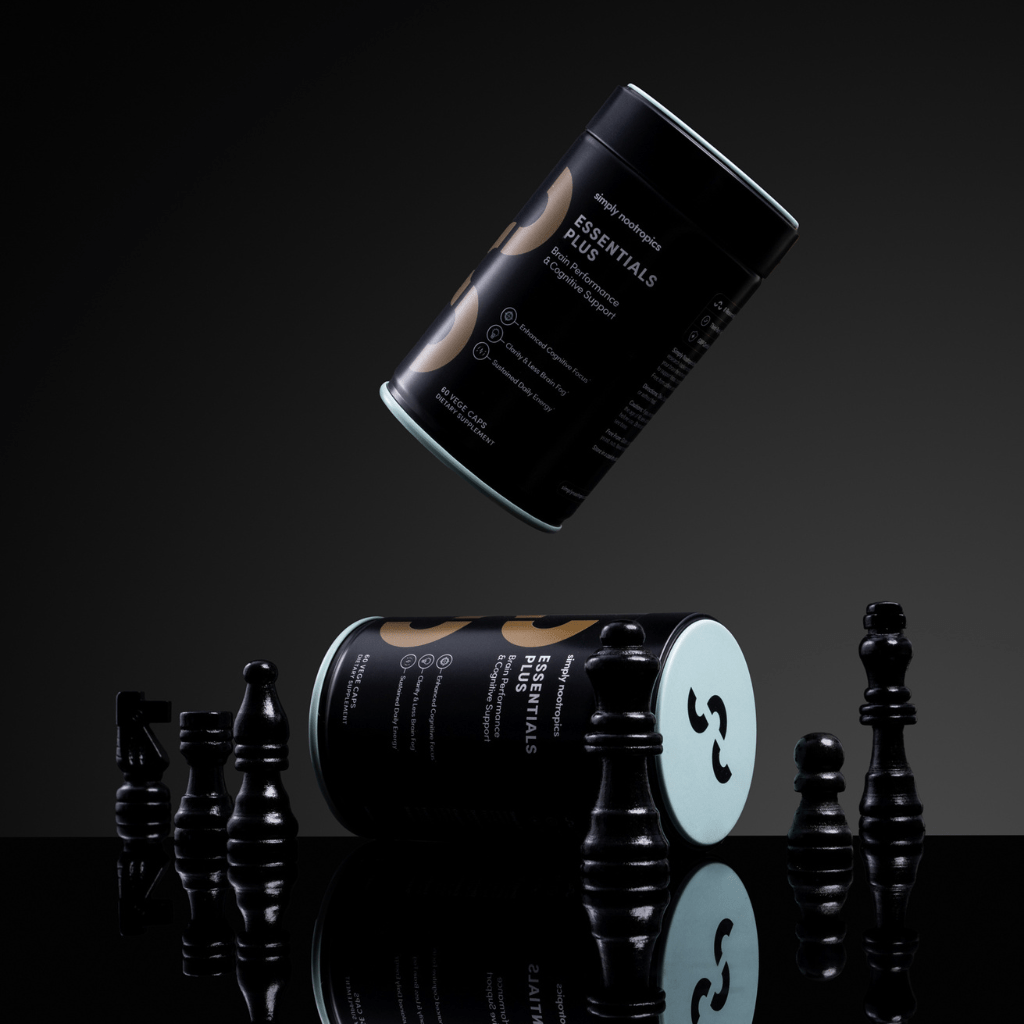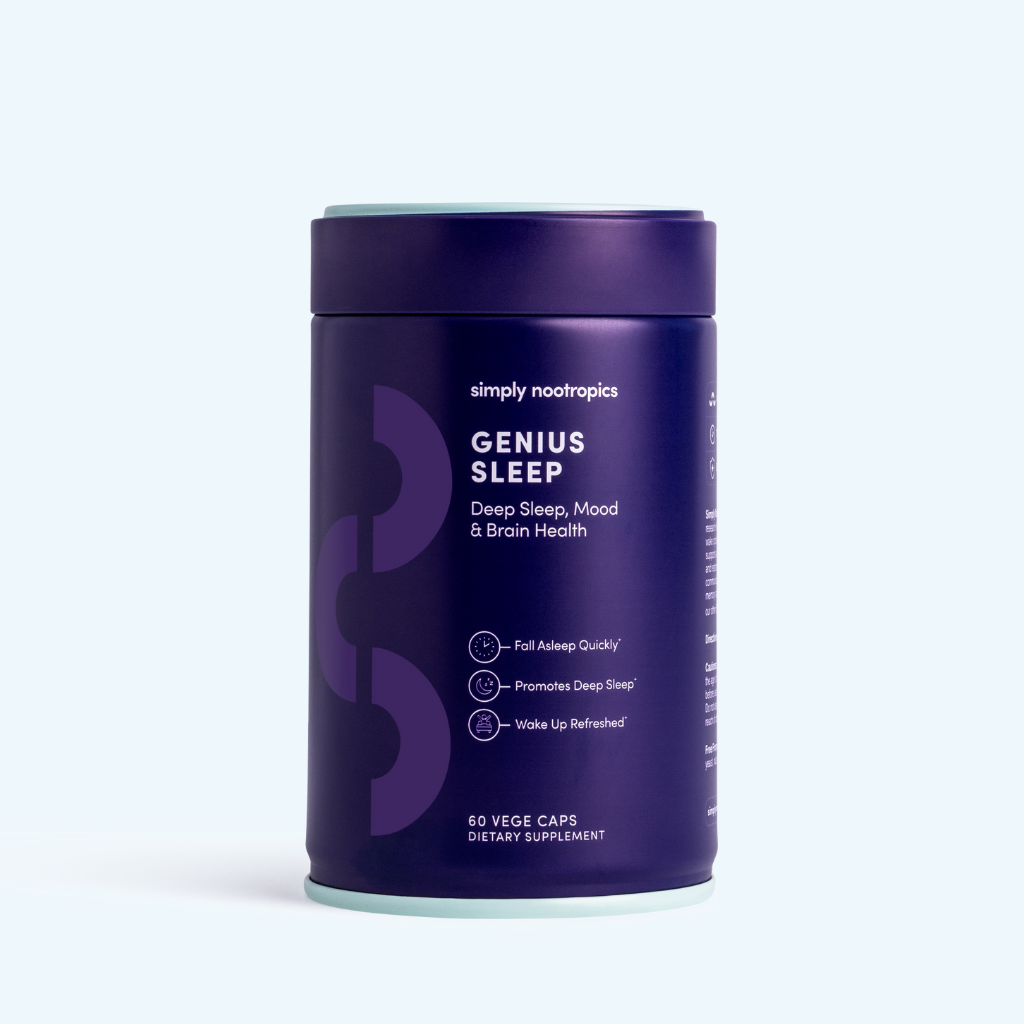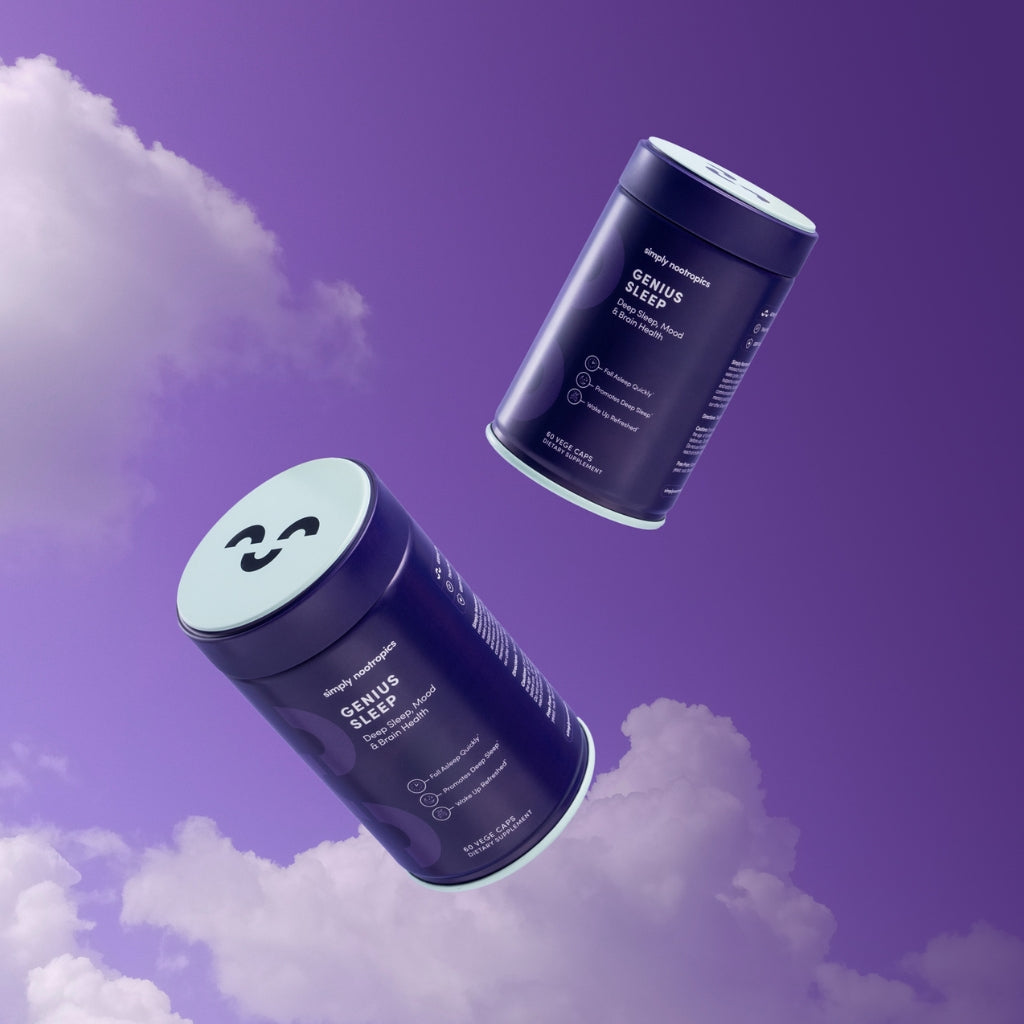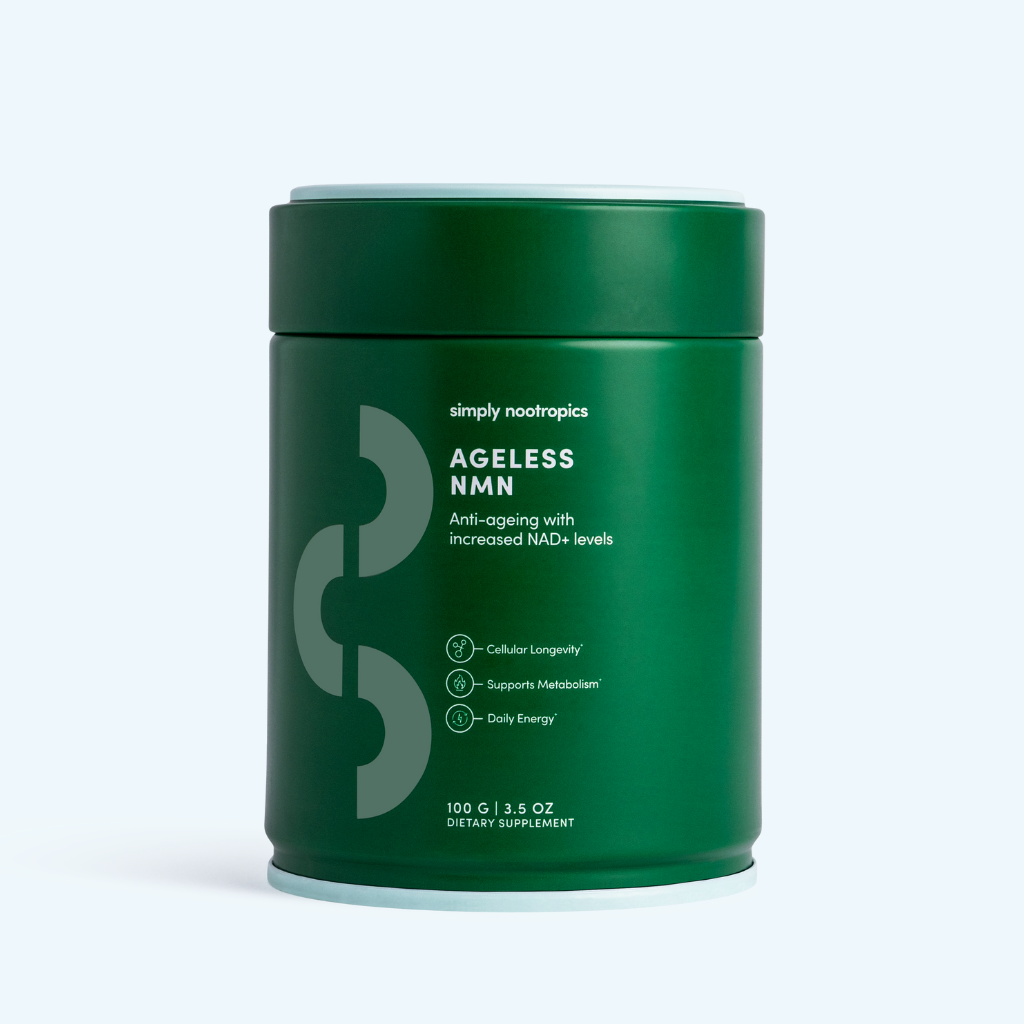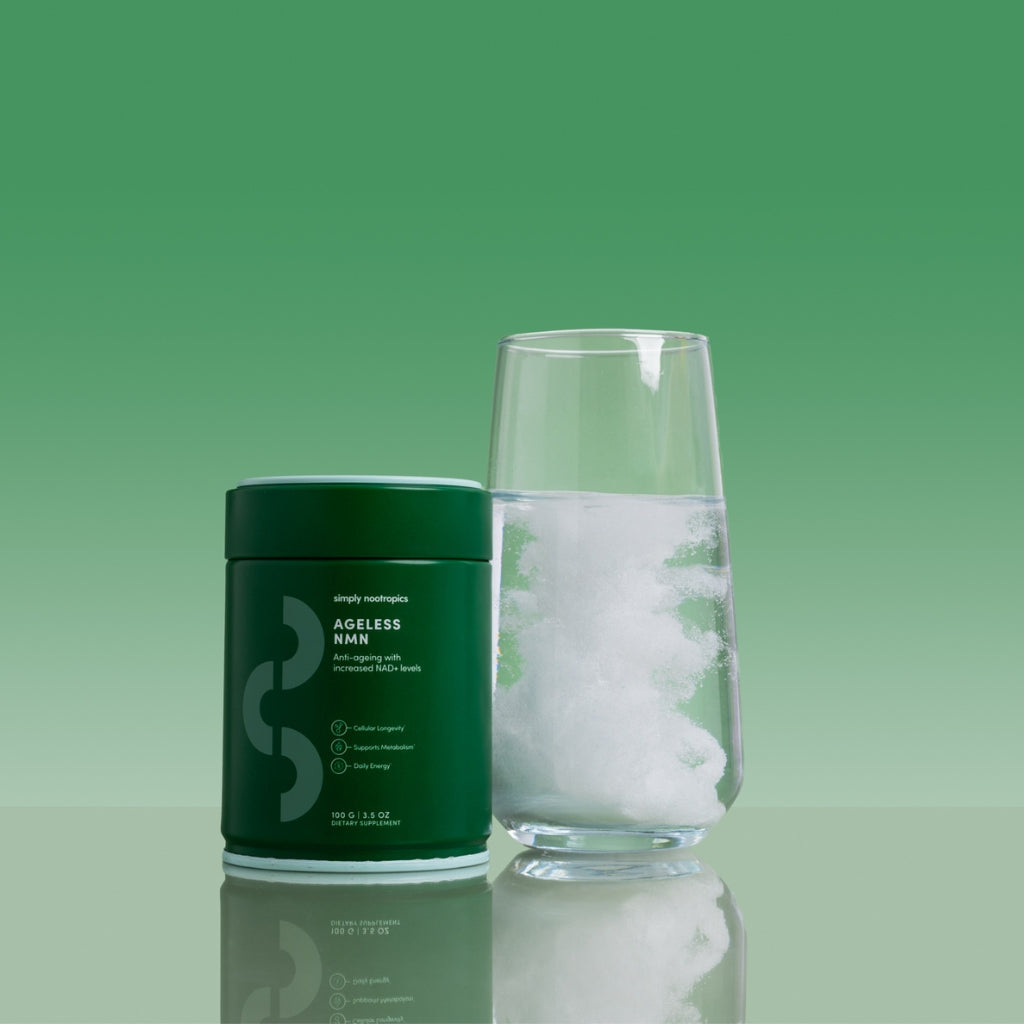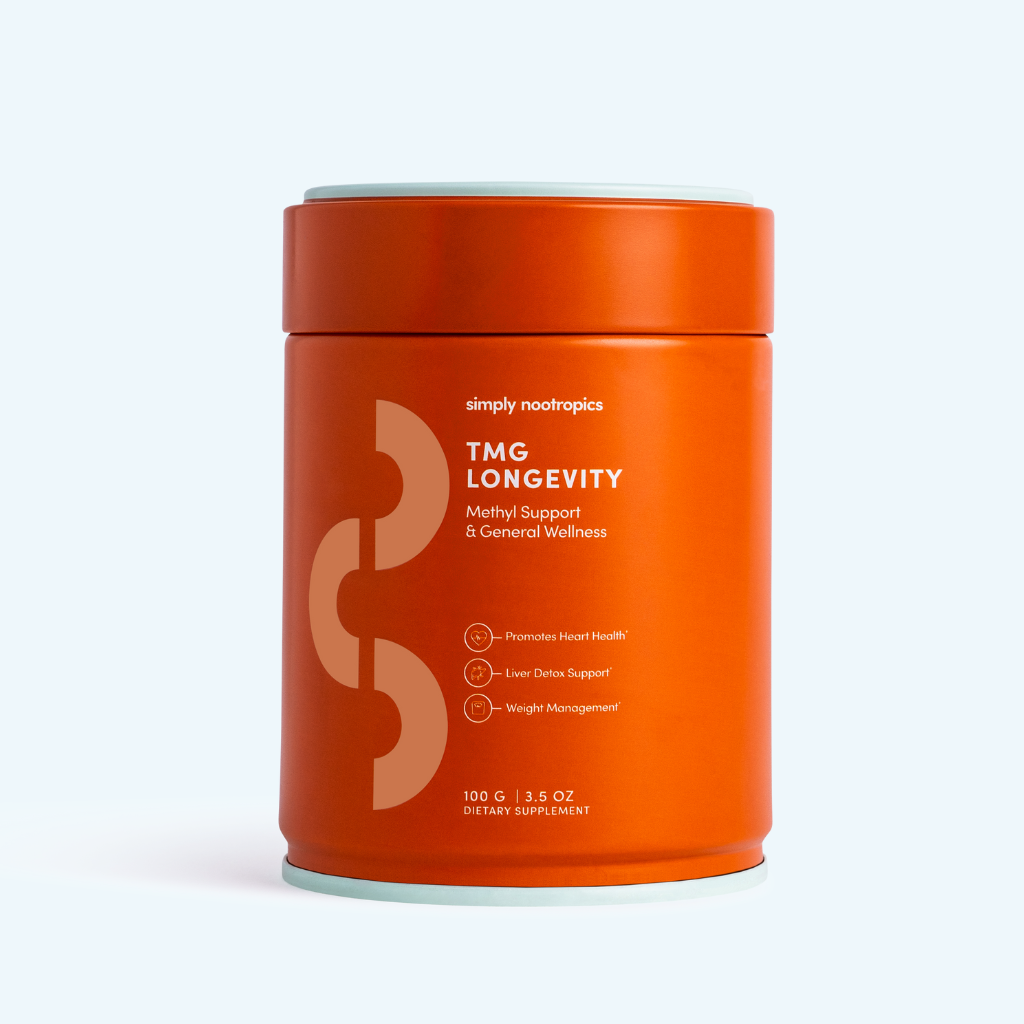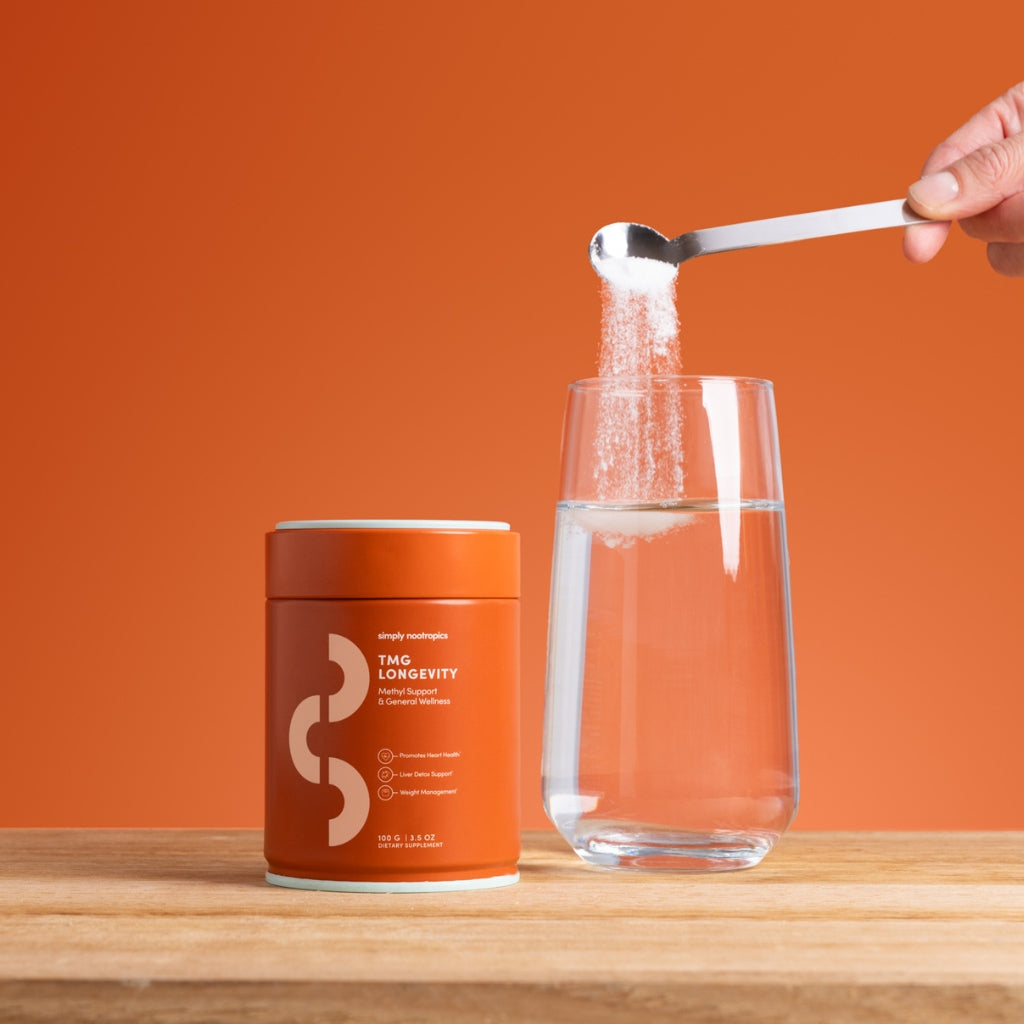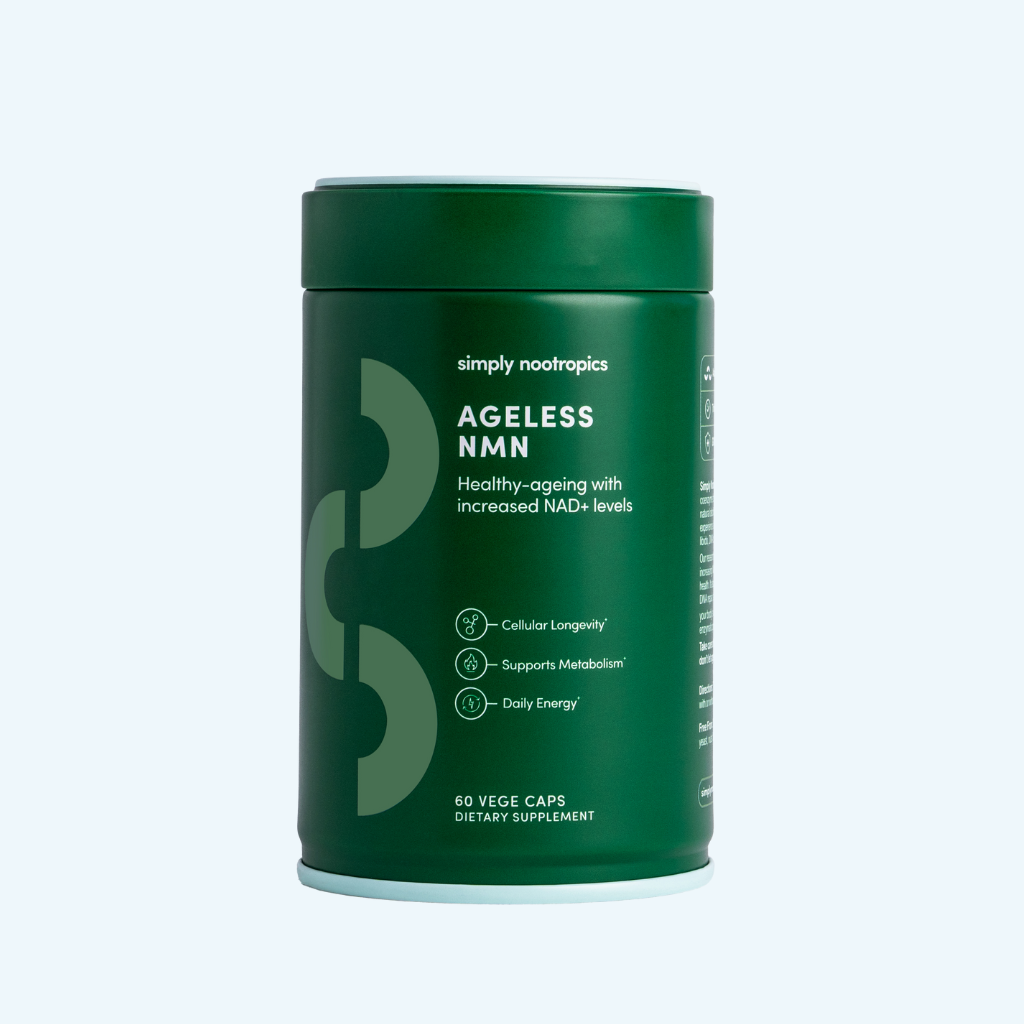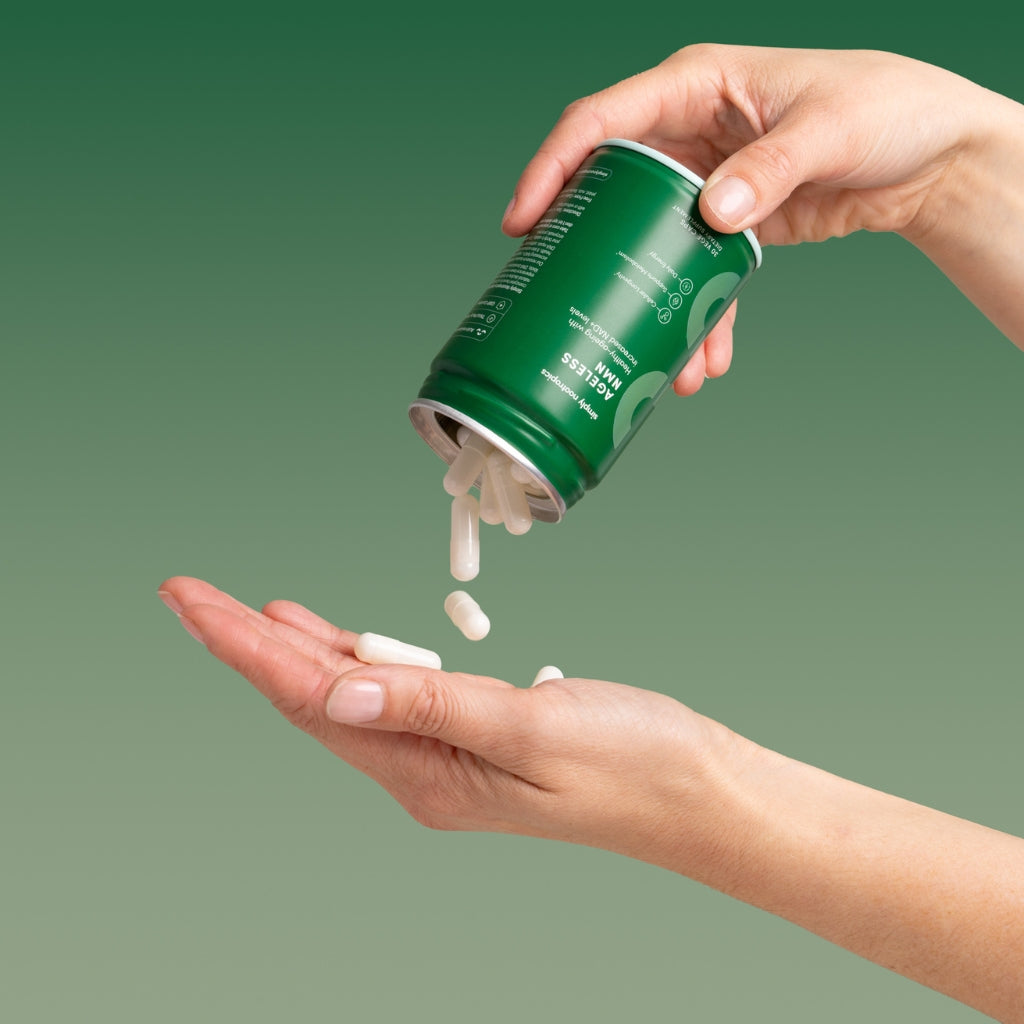Perimenopause is often described as a hormonal transition, but few talk about how clearly that transition shows up in your skin.
You might notice it gradually: your go-to moisturiser doesn’t quite work the same, or you wake up with dry patches that didn’t exist last year. Skin feels thinner, a little less firm. The glow you used to count on after a good night’s sleep doesn’t show up as often. And it’s not just ageing, it’s hormonal.
As oestrogen and progesterone begin to decline, your skin, along with your energy, mood, and cognition, starts adapting to a new internal rhythm. In this blog, we’ll unpack exactly how those shifts affect your skin, what else you might notice along the way, and how to support your body during the process with Simply Nootropics Vital Beauty.
What Exactly Is Perimenopause?
Perimenopause is the phase leading up to menopause, usually starting in your 40s; but for some, changes can begin earlier. It can last anywhere from two to ten years, with fluctuating hormones causing a wide range of symptoms. You may still have your period, but the underlying hormonal balance is changing.
One of the clearest places this change appears? Your skin.
Skin + Hormones
Oestrogen plays a significant role in maintaining skin health. It helps stimulate collagen production, boosts skin hydration, and supports elasticity. As levels begin to decline, these functions are affected, sometimes subtly, sometimes dramatically.
Here’s how your skin changes during perimenopause:
1. Collagen Breakdown Accelerates
Collagen is the protein responsible for keeping skin firm, plump, and resilient. Oestrogen stimulates the production of collagen and helps prevent its breakdown. As hormone levels drop, so does your skin’s collagen content, by as much as 30% in the first five years after menopause.
The result for how skin changes during perimenopause?
-
More visible fine lines and wrinkles
-
Thinner, more fragile skin
-
Loss of firmness, especially around the cheeks, jawline, and eyes
This change in structure can be shocking, especially when it seems to happen suddenly.
2. Dryness Becomes a Daily Battle
Lower oestrogen also means less oil (sebum) production and more transepidermal water loss. In simpler terms, your skin starts to dry out faster and struggles to stay hydrated, even if your routine hasn’t changed.
You may notice this in how your skin changes during perimenopause:
-
Flakiness or tightness, especially after cleansing
-
A dull or lacklustre appearance
-
Difficulty maintaining that “dewy” glow you used to achieve with ease
Even oily skin types can find themselves dealing with dryness or a confusing mix of oiliness and dehydration.
3. Skin Sensitivity Increases
Perimenopausal skin tends to become more reactive. You may find that products you’ve used for years suddenly sting or cause redness when your skin changes during perimenopause. This can be due to:
-
A weakened skin barrier
-
Hormonal changes affecting immune response
-
A shift in skin pH
This new sensitivity means it’s more important than ever to treat your skin gently, and to choose support strategies that work with, not against, your biology.
4. Healing Slows Down
Cuts, blemishes, or irritations may take longer to fade or heal when your skin changes during perimenopause. That’s because oestrogen supports:
-
Blood flow to the skin
-
Cell turnover and regeneration
-
Wound healing response
As these processes slow, so does your skin’s ability to bounce back from everyday stressors like sun exposure, environmental pollution, or irritation from skincare products.
5. Pigmentation May Change
Some women notice an increase in hyperpigmentation or age spots during perimenopause. This can be triggered by hormone-driven inflammation, cumulative sun exposure, and reduced melanin regulation.
It’s Not Just Skin
While we’re focusing on how your skin changes during perimenopause, it’s impossible to talk about perimenopause without mentioning what’s happening under the surface. Your skin doesn’t exist in isolation, it reflects broader shifts in your body’s energy systems, cognitive function, and resilience.
Here are a few things you might also notice:
– Fatigue That Doesn’t Lift Easily
Hormonal fluctuations affect your sleep cycle, body temperature, and even mitochondrial function. That can result in low energy, even if you're technically “well rested.” And because your skin regenerates most actively during deep sleep, fatigue can show up on your face: dull tone, puffy eyes, and slower healing.
– Brain Fog and Slower Processing
Oestrogen influences neurotransmitters like dopamine, serotonin, and acetylcholine, all of which affect memory, focus, and mental clarity. When levels drop, many women experience brain fog. And when you’re mentally fatigued, stress rises, along with cortisol levels, which are known to worsen skin inflammation and breakdown collagen.
– Stress, Cortisol, and Skin Breakdown
Perimenopause can be an emotionally intense time. Career pressure, caregiving roles, and physical shifts collide, and when stress gets chronic, cortisol stays high. This stress hormone doesn’t just affect mood. It also:
-
Increases inflammation
-
Breaks down collagen
-
Disrupts the skin barrier
So if your skin suddenly seems to be ageing faster under pressure, it’s not in your head.
What Can You Do About It?
There’s no way to “pause” perimenopause, but you can absolutely support your body through it. The key is to take a whole-body approach that combines gentle nutrition, nervous system care, and skin-focused support.
Here’s what helps when your skin changes during perimenopause:
-
Stay hydrated, inside and out. Your skin loses moisture faster now, so increase water intake and use barrier-repairing topicals.
-
Reduce inflammatory triggers. Avoid excessive sugar, alcohol, or overly processed foods that worsen oxidative stress and collagen degradation.
-
Support your sleep cycle. Skin heals while you sleep, so protecting your rest is a beauty strategy, too.
-
Be consistent, not extreme. Harsh scrubs, trendy acids, or constantly switching routines can backfire. Focus on repair and nourishment.
And if your skin needs extra support from within, collagen supplementation may be worth considering.
Why Collagen Support Matters Now
When collagen loss accelerates during perimenopause, topical products can only do so much. That’s where internal support can make a real difference, especially if it includes the right co-factors for absorption and synthesis.
Vital Beauty: Skin Support That Works From Within
Simply Nootropics Vital Beauty is designed to help replenish what your skin is naturally losing during this stage of life. It contains:
-
Hydrolysed collagen peptides, which can be absorbed and used by your body to support skin structure and firmness
-
Vitamin C, which supports the body’s ability to produce collagen and contributes to skin repair
-
Vitamin E, which helps protect skin cells from oxidative stress that speeds up visible ageing
Vital Beauty doesn’t reverse time, but it does give your skin the resources it needs to stay strong, hydrated, and resilient.
For many women, it’s not just about how skin looks, it’s about how it feels, like less dryness, more elasticity, and a sense of returning to balance.



